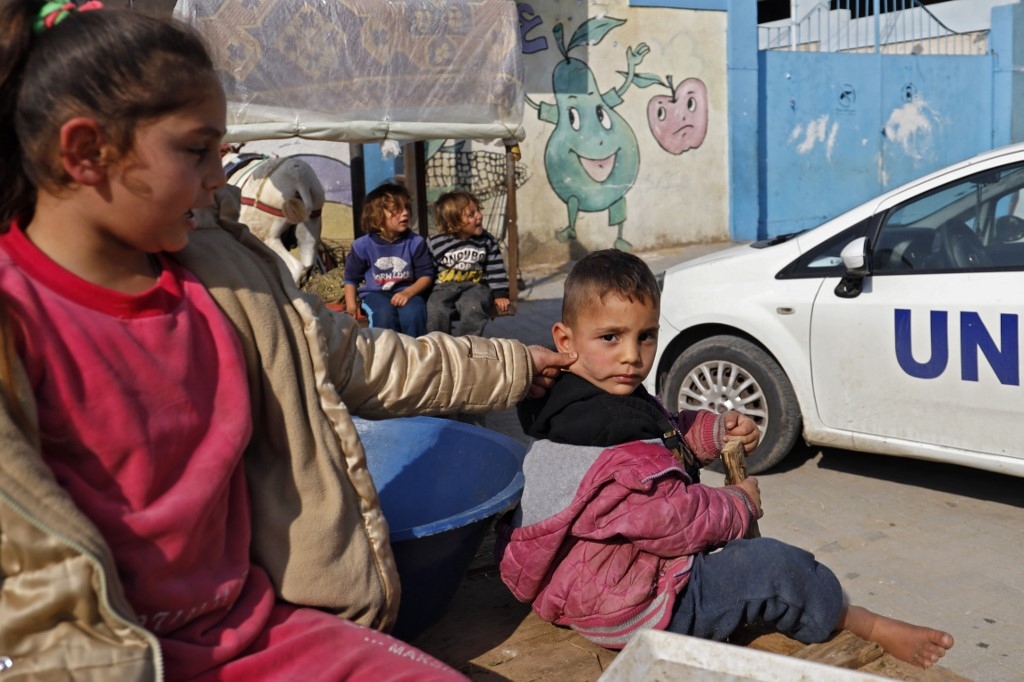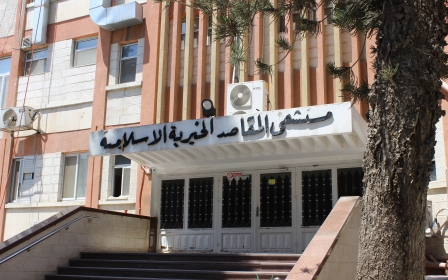Biden administration to restore aid to Palestinians, fix 'atrophied' relations

The Biden administration plans to re-open Palestinian diplomatic missions that were shuttered under former President Donald Trump and restore US aid to Palestine, the acting US ambassador to the UN has announced.
Speaking to the UN Security Council on Tuesday, Ambassador Richard Mills said the US plans to renew relations with Palestinian leadership and the Palestinian people, lamenting that those ties had "atrophied" under the Trump administration.
"President Biden has been clear in his intent to restore US assistance programmes that support economic development and humanitarian aid to the Palestinian people. And to take steps to reopen diplomatic missions that were closed by the last US administration," Mills said.
The Trump administration cut some $200m in aid to Palestine in 2018 in an attempt to pressure leadership into accepting the administration's controversial "deal of the century".
The cuts did not result in further diplomacy, instead leading to a financial crisis that plunged tens of thousands of Palestinians further into poverty. Food and medical aid initiatives, as well as educational programmes suffered, among other humanitarian efforts.
In a joint statement on Tuesday, Belgium, Estonia, France, Germany and Ireland expressed "deep concern" regarding the "critical financial situation" that the UN's Palestinian refugee agency (UNRWA) has experienced since the Trump administration's funding cuts began.
Meanwhile, Mills stressed that the reinstatement of US financial aid and support to the Palestinians was not a sign that the administration was set to act in favour of Palestinian leadership, but that the funding assists "millions of ordinary Palestinians and helps preserve a stable environment that benefits both Palestinians and Israelis".
"At the same time, the US will maintain its steadfast support for Israel. Under the Biden administration, the US will continue its long-standing policy of opposing one-sided resolutions and other actions in international bodies that unfairly single out Israel," Mills said.
"The US will work to promote Israel's standing and participation in UN bodies and other international organisations," he continued.
Mill's statements echo those made by other Biden administration officials and congressional Democrats.
'New possibilities'
Earlier this month, the new chairman of the House Foreign Affairs Committee, Representative Gregory Meeks, said he planned to back Biden's major policy reversals, including the resumption of humanitarian aid and the return of a Palestinian diplomatic presence in Washington.
Later on Tuesday, press secretary Jen Psaki stressed that the Biden administration's view is that "a two-state solution is the only path forward" for Palestine and Israel.
During his address, Mills also stressed the US's intentions to support the two-state solution, which would see the establishment of an independent Palestinian state.
In doing so, Mills said Washington will expect concessions from both countries, noting the need for Israel to halt its settlement expansion and annexation plans, and for the Palestinian leadership to rollback its welfare scheme for the families of those killed or imprisoned following anti-Israel attacks.
"The United States will urge Israel's government and the Palestinian Authority to avoid unilateral steps that make a two-state solution more difficult, such as annexation of territory, settlement activity, demolitions, incitement to violence and providing compensation for individuals imprisoned for acts of terrorism," Mill said.
The ambassador added that the Biden administration "welcomes" the normalisation deals between Israel and several Arab countries that have taken place since August - a major foreign policy point of the Trump administration. Mills said that the US will continue "to urge other countries'' to follow suit in normalising relations with Israel.
"We recognise that Arab-Israeli normalisation is not a substitute for Israeli-Palestinian peace. The conflict between the Israelis and Palestinians may not be the major fault line in the Middle East, but its resolution nevertheless would significantly benefit the region as a whole," Mills said.
"It is the hope of the US that normalisation can proceed in a way that unlocks new possibilities to advance the two-state solution."
Middle East Eye delivers independent and unrivalled coverage and analysis of the Middle East, North Africa and beyond. To learn more about republishing this content and the associated fees, please fill out this form. More about MEE can be found here.






